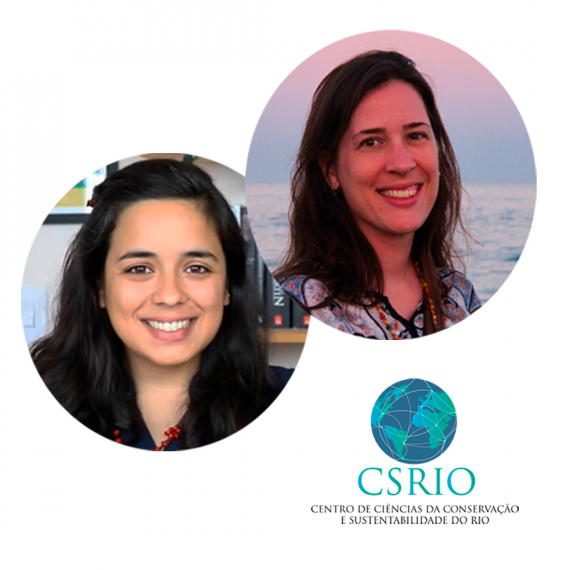
In this seminar, we welcomed the biologists Camila Islas and Alice Ramos, who approached the integrated management of rural landscapes from the experiences obtained in their doctoral research, in the Paraíba Valley region (São Paulo state), under a socio-ecological focus.
About the speakers:
Camila is a biologist from the Federal University of Pelotas (UFPEL), Master and PhD in Ecology from the State University of Campinas (UNICAMP). Works in Research, Education and Extension in subjects related to the socio-environmental area. Has experience with Management of Natural Resources and Ecology, Biodiversity Management and Conservation (especially wildlife) and Ecosystem Services. In particular, i) addresses the effects of human presence and action on communities and ecosystems and ii) investigates possibilities for the management of resources and territories, from the perspective of Socioecological Systems, integrating Traditional and Local Ecological Knowledge and using participatory methods . She is currently participating as a young researcher in the Evaluation on the Sustainable Use of Wild Species of the Intergovernmental Science and Policy Platform on Biodiversity and Ecosystem Services (IPBES).
Alice Ramos de Moraes is a biologist, specialist in Environment and Sustainable Development and PhD in Ecology from the State University of Campinas (UNICAMP). She is a researcher at the Laboratory of Ecology and Management of Ecosystems (LEME) and at the Group for the Conservation and Management of Common Use Resources (CGCommons), both based at the Center for Environmental Studies and Research – NEPAM / UNICAMP. Her research has a socio-ecological focus, encompassing themes such as ecosystem services and human well-being, conservation by communities and socio-ecological resilience. She also works as a sustainability consultant and as associate of OSCIP Akarui, where collaborates with projects to encourage environmentally sustainable and socially fair practices in the rural areas of the São Paulo Valley.
Back to News


